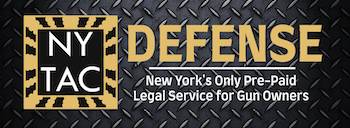Representation.
Criminal Facilitation
New York State has a specific section of its criminal code that criminalizes the act of aiding or making it easier for another to commit a crime. Criminal facilitation is chargeable in four degrees, the lowest being a class A misdemeanor and the highest being a class B felony. These charges can be brought against someone who may not have necessarily helped commit the crime but allow the opportunity for another person to commit a crime. Charges like this are incredibly serious and you should have an attorney by your side who you can trust with your case. Call now for a free consultation with one of our experienced New York criminal attorneys to discuss your case.
Criminal facilitation in the fourth degree applies when a person acts in such a way that would be providing another person with opportunity or means for them to commit a crime and results in a felony offense while the initial person believed it probable that the crime would be committed. Additionally, this degree of the offense applies when a person over 18 renders aid to a person under 16 who intends to commit a crime does so by the opportunity or means provided by the initial actor.
The offense becomes a class E felony when believing it possible that they are giving aid to someone under 16 who intends to commit a felony offense, a person who is over 18 provides the opportunity or means for the offense to be committed. Because the person who is under 16 intended and is aided to commit a felony offense, the person who gives opportunity or means is also then charged with a felony. Felony offenses typically come with a minimum sentence and jail is a possibility.
If a person acts is such a way as described above, but the crime committed was an A felony, the offense is now charged in the second degree and is a class C felony. In the same instance as just above, but the person who commits the A felony offense is under 16 and the opportunity or means was provided by someone over 18, the person giving the aid is charged with a class B felony.
It is important to know that a person cannot be convicted of criminal facilitation based solely on the testimony of the person charged with having committed the felony, there must be other evidence that shows to connect them with the crime. However, conduct that is included in for this offense to be charged is that of exchanging, giving or even disposing of a ‘community gun’ (one that is shared between two people even though one is not authorized the firearm).Other conduct is of course included, but this is one specific action that is named in the statute.
Criminal facilitation charges are incredibly serious and can lead to lengthy court proceedings. Have an attorney you can trust by your side to help you handle the charges and explain the process. Call now for a free consultation with one of our experienced New York criminal attorneys.

















